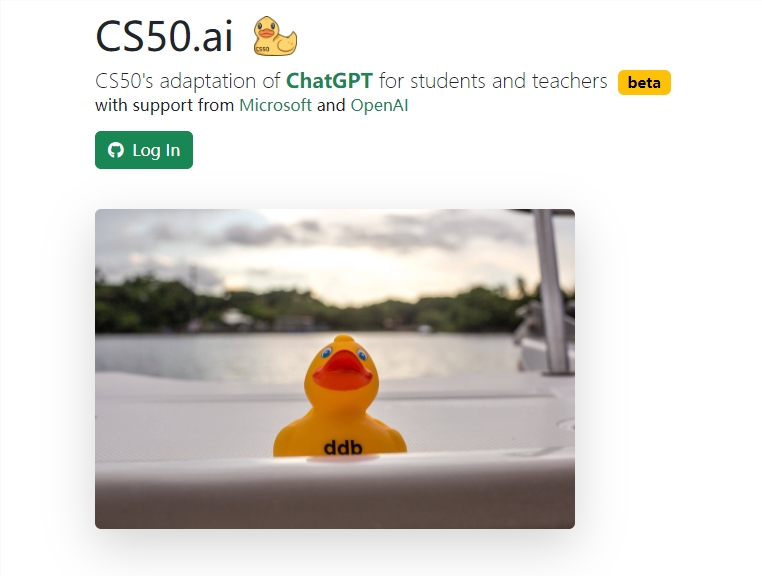exist ChatGPT When it first came out, many universities banned the use of AI-assisted tools such as ChatGPT and GitHub Copilot to prevent students from cheating. However, Harvard University realized that if it did not use the powerful potential of AI to enrich students' learning process, it would miss a valuable opportunity, which would be a pity. Therefore, they actively developed a set of AI-assisted tools based on GPT.AI-assisted teaching tools, attempting to apply generative artificial intelligence in computer science education.

Address: https://cs50.ai/
This tool suite includes three main functions:
The first is "Explain Highlight Code", which explains the selected code. The second is an enhanced version of the code style assessment tool style50, which provides guidance on code improvement and optimization, similar to the role of a human teacher. The last is CS50 Duck, a chatbot that can answer course-related questions through multiple platforms.
Technically, chatting is based on OpenAI's ChatComplition API, and answering questions is based on RAG (retrieval-augmented generation). And a visual heart counter is used to limit the frequency of use. Each student starts with 10 hearts, and one can be restored every three minutes. Each interaction with the CS50 duck consumes a heart, which can prevent abuse and help reduce operating costs.
The feedback from students on these AI tools was very positive and they said that the AI tools helped them a lot, explaining some concepts that were not clear to them and teaching them the new knowledge they needed to solve specific problems.
Although there are some problems, such as a certain error rate in course-related questions, Harvard University said they will continue to improve their AI teaching tools, such as grading homework, and will also expand courses from CS50 to other subjects. These initiatives have received positive responses from students, who believe that using AI tools to adapt to working with AI in advance is great, rather than hindering their learning.